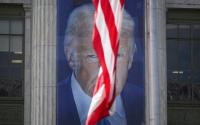22 October 2004Ian Bremmer
Oct. 7, the European Union's executive commission officially recommended that the 25-member bloc start talks with Turkey on eventual membership in the EU. As Europe debates the merits of Turkey's admission, it faces a defining moment. EU member states must decide if it is time to expand the definition of Europe to include a Muslim nation. But the decision may also change the fundamentals of trans-Atlantic relations in unexpected ways: Turkey's admission to the EU may drive a wedge between the United States and Europe.
Turkey's eventual EU invitation will depend on two currently competing trends in Europe: recognition that the continent's aging population needs increased immigration to pay for the continuation of its generous social safety net, and the cultural and political backlash when those immigrants are Muslim.
On the one hand, anti-Muslim sentiment in Europe is growing, particularly since the terrorist attacks of Sept. 11, 2001, and efforts to force Europe's several million Muslims to assimilate are under way in several European countries. France has imposed a ban on the wearing of the Muslim headscarf in state-run schools - an idea with broad popular support. Several German states are pursuing the same idea. Denmark has placed restrictions on arranged marriages. The British government has introduced civics lessons and an oath of allegiance for all applicants for citizenship.
Then there's the more openly xenophobic reaction. It has not escaped the notice of several far-right parties in Europe that for the fourth year in a row, the most popular name for newborn boys in Brussels is Muhammad. A Danish far-right political party recently produced campaign posters featuring a picture of a young blond girl and the slogan: "When she retires, Denmark will have a Muslim majority."
Anti-immigrant far-right parties are building a political following across Europe. Austria's Freedom Party, Italy's Northern League, Switzerland's People's Party, and Norway's Progress Party cooperate with similar groups in France, Germany, Belgium, and elsewhere. Anti-Muslim assaults are on the rise, particularly since last spring's Madrid train bombings.
On the other hand, Europe's coming demographic crisis is real. A recent Brookings Institution study predicts that in 2050, while the median age in the United States will be 35.4, in Europe, with its declining birthrate, it will rise to 52.3. And because Europeans tend to retire earlier than Americans - only 39 percent of European men age 55 to 65 now work - a shrinking number of young people are paying into pension systems that have to support a steadily rising number of retirees.
.Europe is a wealthy continent with low birthrates and an aging population, bordered to the south and southeast by poor Muslim countries with lots of unemployed young people. And as productivity and quality of life improve for citizens of the new EU member states of Eastern Europe, fewer of those Easterners will move west in search of better prospects. The need for immigrants from North Africa and the Middle East will only grow if Europe is to expand its tax base widely enough to fill the demographic gap.
.It's been estimated that allowing a million immigrants a year into Europe would have the same effect on the tax base as an increase in the European birthrate of one child per mother. But a million immigrants a year would add up to 50 million immigrants by 2050. Europe is having enough trouble assimilating the 13 million to 15 million Muslims it already has.
What new priorities will Europe adopt in response to these new demographic and political realities? The EU could decide that its citizens will trade generous pensions for a stronger sense of security. Resistance to Muslim immigration would increase. Europe might become the key U.S. ally in the war on terror, and anti-Muslim immigration laws would be tightened. Fewer Muslims would immigrate to EU countries; Muslims already in Europe would leave in search of more welcoming surroundings. Muslims that stay would become easier prey for Muslim extremists in European cities preaching hatred of the West. If present trends continue, this is the Europe we can expect in 2015 or 2020.
Or Europe may adopt a much more flexible sense of its own identity and work harder to assimilate Muslims who will help drive the economy and protect the social safety net. EU countries might find creative ways to bring Europe's Muslims out of their current isolation and into the political and cultural mainstream. This choice offers less social strife and protection for Europe's aging population, but would require that Europe face its xenophobia.
This is where Turkey comes in. The entry of Turkey into the European Union - at least a decade away by most estimates - will immediately add tens of millions of Muslims to the population of Europe. And the European Union will then border Iran, Iraq and Syria.
What effect does this have on Europe's relationship with Washington? Long-term, Turkey's inclusion in the EU causes real trouble for the United States, because it makes a permanent rift between Europe and the United States, along the lines seen recently over Iraq (where Turkey's position was already closer to Paris and Berlin than to Washington), much more likely. The addition of Turkey's armed forces makes a common European defense more feasible - which makes NATO less necessary.
While Turkey might bring its traditionally strong relationship with Israel into the EU, it is more likely that a newly self-confident European Turkey will loosen its bonds with both Israel and America. The addition of Turkey's Muslim population - already over 70 million - to the rest of Europe's Muslims will swing Europe further from America than ever on conflicts in the Middle East.
George W. Bush, like his recent White House predecessors, has consistently promoted Turkey's entry into the EU - and been scolded by many Europeans for interference in European politics as a result. Given the likely effect on U.S.-European relations, Washington's support for Turkey's entry no longer makes sense. On the other hand, perhaps President Bush understands Europe better than most think. Maybe he figures a Bush endorsement of Turkey's entry is the best way to keep Turkey out.






